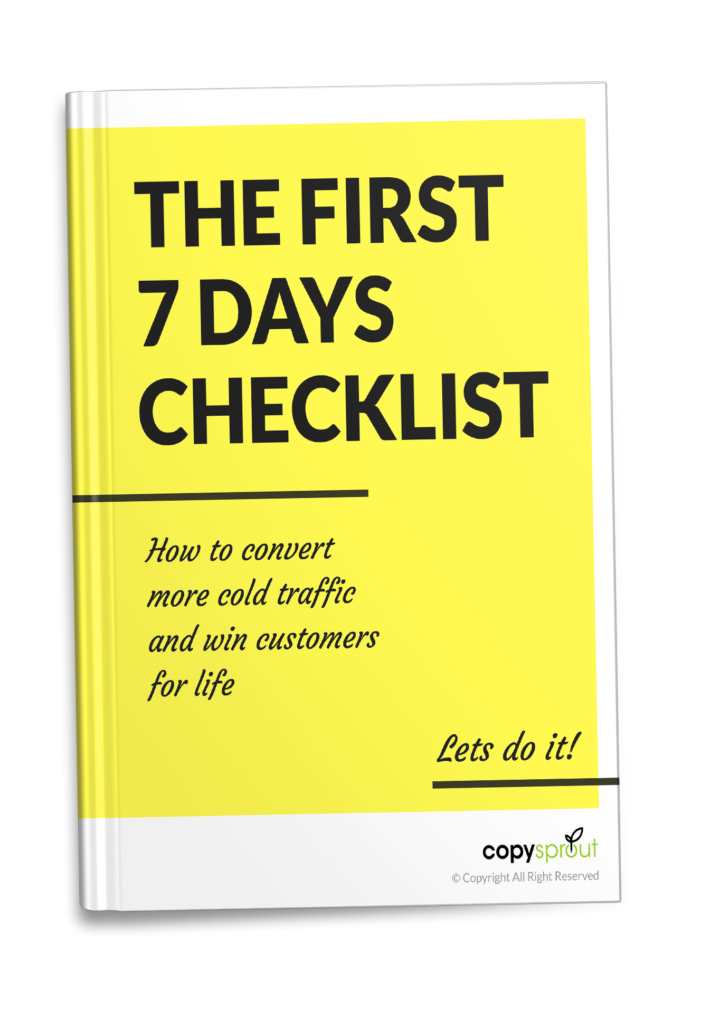As a copy strategist, one of my goals is to help clients develop a relationship with their email subscribers.
And when it comes to developing a relationship, this is one of the biggest mistakes I see:
Lack of trust.
Meaning, the business isn’t doing anything to build trust with their prospects and customers. Or even worse, they’re actually doing things that chip away at trust.
This is something I talked about on stage at Copy Chief Live last year.
In that talk, I used the example of the time I was shopping for a used car. And in case you’re more of a reader than a watcher, I’ll tell the story here…
I remember sitting in a car with the salesperson, and my throat started to feel scratchy. I smelled a familiar smell. I said, “I think this car was owned by a smoker.”
The salesman told me, “No … I don’t smell anything. My parents were smokers, so I would know. It made me very sensitive to cigarette smoke.”
So he lost the sale in the first five minutes. Why?
Well, as authors Bob Burg and John David Mann put it, “All things being equal, people will do business with, and refer business to, those people they know, like, and trust.”
And the most important of the three is trust.
That’s why the car salesman lost my business. He lied.
See, I happened to know that prolonged secondhand smoke exposure actually kills your sense of smell, so he would be less able to smell it. Not more, as he claimed.
Now, I hear that not everyone reads medical journals for fun, so maybe he didn’t intentionally lie.
But either way, I didn’t trust him anymore. I felt like I was just a sales commission to him.
Why we HAVE to trust
Trust is tricky, because it’s something we actually have to do to some extent. It’s the basis of human interaction.
Without trust, no one would eat food grown by a farmer they’ve never met…
Without trust, no one would ever undergo surgery. Think about it: One doctor knocks you unconscious while another one cuts you open….
Without trust, no one would board an airplane…
We have to trust that our doctor knows what he or she is doing. That our pilot will be sober and alert. That people will generally do their best and take their responsibilities seriously.
But we don’t trust easily…
Many of us have trouble with trusting others. And that’s because we know there’s a steep price to pay when we’re wrong.
“Trust involves the juxtaposition of people’s loftiest hopes and aspirations with their deepest worries and fears.” –Jeffry A. Simpson
In other words, we’re afraid of getting screwed over. And it’s not just about losing money. It’s about feeling shameful and feeling stupid for having trusted the wrong person.
So then how do we gain the trust of our prospects and customers?
Well, there’s the obvious stuff. Do what you say, honor your guarantee, deliver a quality product, etc.
Hopefully those are things that a business is already doing.
But as I mentioned earlier, there are little things that marketers do that chip away at trust. And they may not even realize it.
Here’s an example…
I had a client who wanted me to write a new autoresponder for his webinar. So I looked at his current copy, and I saw this:
“Space is limited. Save your seat now by registering for the webinar today.”
As a reader, I thought, “Yeah, right. You have to limit attendance on your online webinar?”
And even if it’s true, it’s sowing seeds of doubt. And we never want to sow seeds of doubt.
So I asked the client, “Is this true? Is space really limited on the webinar? If so, why?”
Turns out, my client had a great reason for limiting seats.
He said, “I always stay on these webinars until I’ve answered everyone’s questions. So I just can’t let 1,000 people in or I’d be on the webinar for hours.”
Now that’s an incredible, trust-building benefit! He cares so much, he’s going to stay on the webinar and answer every single question.
So I changed the copy to basically say just that.
Now we’d gone from the previous copy, which sounded iffy and chipped away at trust, to this new copy, which is making me feel like, “This guy really cares.”
And that’s just one example of ways that copy can unnecessarily erode trust.
My hope is that more businesses and more marketers will skip the hacks and tricks. And instead, will look for creative and honest ways to persuade customers to buy. Because it’s possible, it just requires more work.
And when you take the time to think these things through and build trust, and you turn more prospects into customers, and more new customers into long-term customers.

